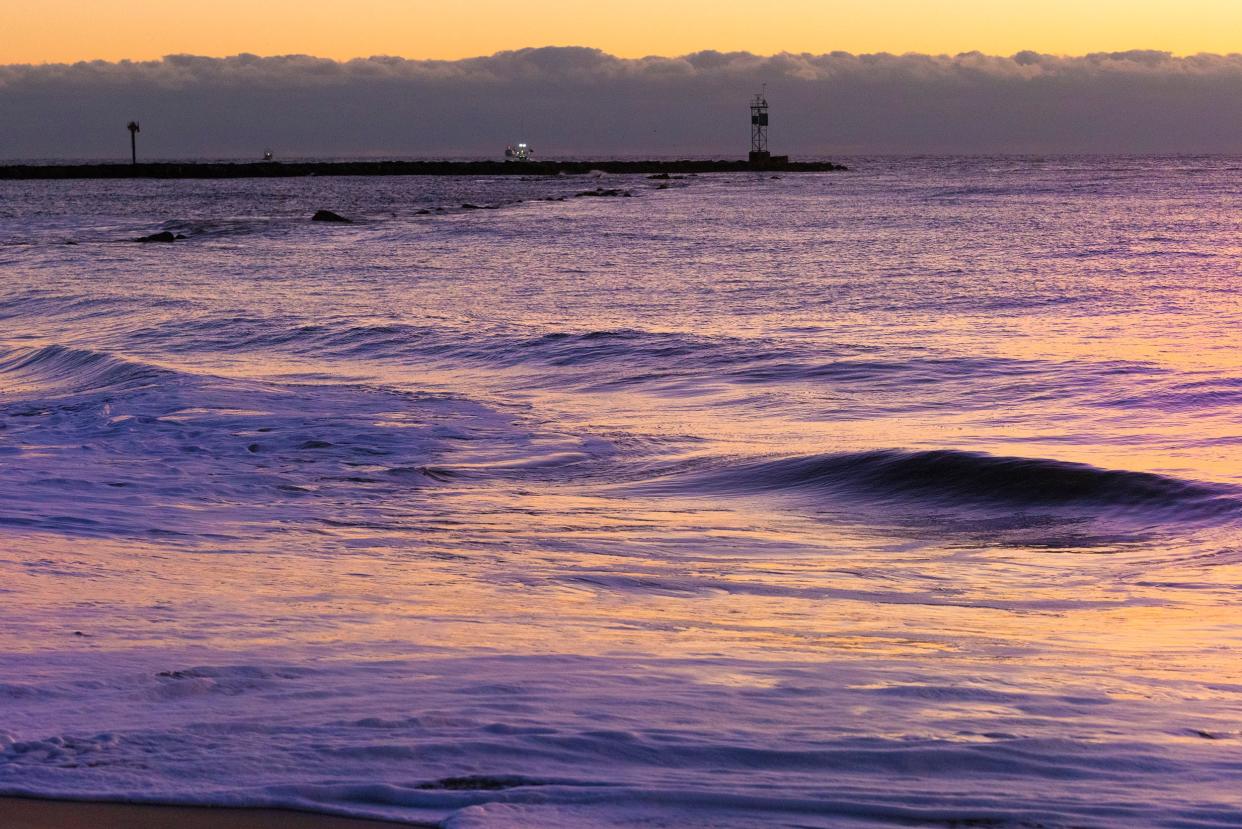Seaside Heights bay beach closed due to fecal bacteria levels

New Jersey environmental officials closed the bay beach at Hancock Avenue in Seaside Heights to swimming on Wednesday, Aug. 9, after rounds of water testing showed high levels of a bacteria commonly found in the feces.
Concentrations of enterococcus exceeded the state's safe swimming standards during both Monday and Tuesday's rounds of testing, according to the New Jersey Department of Environmental Protection.
Enterococcus — which is common in the intestines of humans and animals — is used as an indicator species to signal that other illness-causing bacteria, viruses and protozoa could be present in water.
While environmental officials closed the Hancock Avenue beach, they lifted water quality advisories at 15 other beaches along the Jersey Shore, where advisories for high bacteria counts were issued earlier this week.
Atlantic County
In Atlantic City, seven ocean beaches — at Michigan Avenue, Arkansas Avenue, Connecticut Avenue, Kentucky Avenue, South Carolina Avenue, Rev. Dr. Martin Luther King Boulevard and New York Avenue — are now considered safe for swimming, according to the Department of Environmental Protection.
Monmouth County
Bacteria counts had dropped to levels considered safe for swimming at the bay beach at the Highlands Recreation Center, Miller Beach in Highlands, the Roosevelt Avenue beach in Deal, the Elberon Bathing Club and the Ocean Beach Club in Long Branch, the ocean beach at Broadway in Neptune, and the New York Avenue beach in Sea Girt, according to the New Jersey Department of Environmental Protection.
Ocean County
A water quality advisory was lifted Wednesday at the river beach at River Avenue in Point Pleasant.
Levels of enterococcus often rise in rivers and bays after rain and storms, when pet and wildlife droppings are washed into local waterways. Leaky sewers, septic systems and livestock can also contaminate lakes and rivers.
Swimming in feces-contaminated water can cause serious illness, particularly in young children, elderly adults and people with compromised immune systems. Some of the most common illnesses from exposure include gastrointestinal distress and infections of the eyes, ears, skin and lungs, according to the U.S. Environmental Protection Agency.
Monmouth U. work could lead to better water alerts
On Wednesday, Monmouth University researchers announced they were studying the enterococcus levels after rain and developed a new model for predicting bacteria spikes at Jersey Shore beaches.
Environmental officials test beaches on Mondays, and only retest in the same week if Monday's tests show high bacteria counts. But Monmouth University researches said they found ways to predict bacteria spikes at beaches when accounting for rain, location of stormwater discharges and water temperature.
"If it happens to rain on the weekend or early Monday, you’re going to get a lot of exceedances when you measure on Monday," Monmouth University Endowed Professor of Marine Science Jason Adolf said in a news release.
"But if it rains on Tuesday through Saturday, the beaches we studied are likely to exceed enterococcus levels within 24 hours and will probably be clear by the following Monday (but have no water quality alerts issued)," he added. "We recognize the logistical challenges to daily sampling, but our research suggests you can supplement weekly monitoring with modeling that predicts the water’s safety based on environmental parameters which are already being measured all the time."
The researchers said their new model could be used to supplement the state's water quality alert system, despite limitations to the weekly water quality tests.
Earlier this week: 16 Jersey Shore beaches have high bacteria counts
Amanda Oglesby is an Ocean County native who covers education and the environment. She has worked for the Press for more than 15 years. Reach her at @OglesbyAPP, aoglesby@gannettnj.com or 732-557-5701.
This article originally appeared on Asbury Park Press: Seaside Heights bay beach closed to swimming due to bacteria

